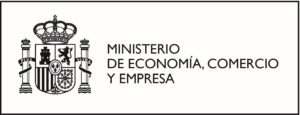CORONAVIRUS: WHAT EMPLOYERS IN ITALY NEED TO KNOW. FUNDAMENTAL OPERATIONAL INDICATIONS FOR COMPANIES & EMPLOYEES TO PREVENT CONTAGION
The new infectious disease Coronavirus (“COVID-19”) is currently in an expansion phase on the Italian peninsula and is raising multiple questions related to personnel management, as well as the protection of health and safety at work. Based on the national and international information currently available, LABLAW is providing the following operational indications about the behaviours to be adopted by employers in Italy, in order to prevent the spread of contagion from COVID-19 within the workplace. The situation is however rapidly evolving and, therefore, the following indications may be updated on the basis of the epidemiological trends of the disease, the most recent scientific knowledge and what, consequently, will be established at international and national levels, in order to guarantee the principle of maximum precaution in relation to the evolution of the COVID-19 epidemic.
LABLAW’s Handbook on the Consequences of the Coronavirus on Employment Relationships in Italy
Preventive measures to be taken in the Italian workplace.
The news of the spread of COVID-19 requires companies in Italy to immediately adopt measures to prevent the risk of contagion as far as possible, based on the most up to date information available. The employer – pursuant to Art. 2087 of the Italian Civil Code – has the duty to take all security measures in order to guarantee their employees’ physical integrity and moral personality. Pursuant to Legislative Decree no. 81/2008, the Italian employer also has the responsibility to protect workers from exposure to”biological risk” in collaboration, where present, with the company doctor.
In view of this, it is certainly appropriate to provide for the immediate updating of the Risk Assessment Document (in Italian DVR – Documento di Valutazione dei Rischi) to ensure it includes the presence of this new biological risk, as well as for the supply of personal protective equipment for the staff aimed at ensuring the healthiness of the workplace in addition to the installation of antibacterial gel dispensers as well as the supply of gloves and / or protective masks. In relation to the above, in accordance with the indications dictated by the circular of the Italian Ministry of Health on February 3, 2020, employers in Italy must therefore invite their employees to follow common measures to prevent the spread of diseases, namely: frequently washing of hands; paying attention to surface hygiene; avoiding close and protracted contact with people who have flu-like symptoms.
Suspected Cases
If, during the working activity, someone comes into contact with a subject who responds to the definition of a suspect case, the employer is required to immediately contact the health services indicating that there is a suspect case of COVID-2019. While waiting for the arrival of the Italian health workers: one must avoid close contact with the sick person and, if available, provide them with a surgical mask – in addition to washing of ones hands thoroughly. Pay particular attention to the physical surfaces that have possibly come into contact with the patient’s fluids (respiratory secretions, urine, feces). Have the patient directly dispose of any used paper tissues / products that they have used in a waterproof bag. This bag will be disposed of together with the infected materials produced during the medical activities of the Italian health workers who come to attend the patient.
Suspension of Work for Suspicious Cases
In accordance with the indications dictated by the circular of the Italian Ministry of Health on February 21st,2020, the suspension of the performance of the work activity is made immediately mandatory 1) for workers who have had close contact with confirmed cases of the diffusive infectious disease COVID-19, to which the measure of the quarantine with active surveillance is ordered by the competent local Italian health authority, 2) For workers who, in the past 14 days, have entered Italy after staying in the areas of the People’s Republic of China affected by the epidemic; 3) for workers who are included in the segregated areas of the North of Italy (Law Decree n. 6/2020 and Presidential Decree 23 Feb 2020) as furthermore specified.
It is also currently mandatory, in accordance with the provisions of the ordinance made by the Italian Minister of Health and adopted in agreement with the President of the Lombardy Region on 21 February 2020, as well as by the Decree of the President of the Council of Ministers dated 23 February 2020, the suspension of work for residents or domiciled workers, even de facto, in the Municipalities of Bertonico, Casalpusterlengo, Castelgerundo, Castiglione D’Adda, Codogno, Fombio, Maleo, San Fiorano, Somaglia, Terranova dei Passerini, and Vo’. This also includes when their work takes place outside of these Municipalities or in other indicated areas. There will be the immediate suspension of working activities forcompanies, excluding those that provide essential and public utility services (this includes veterinary activities remaining operational), as well as those that may be carried out at home or in a remote way.
Measures to be taken by Employers in Italy
As a precaution, employees which fall into the categories indicated above are therefore currently prohibited, until further notice, from reaching the workplace. In view of this, it is therefore possible to request these staff members to immediately contact their superiors (or when applicable with the company’s human resource management department), in order to assess the sustainability of a work performance carried out remotely, through the use of agile work (so-called Smart Working) and teleworking, or in order to suspend work, without prejudice to the economic and regulatory treatments provided for the normal performance of the work activity. In this hypothesis, it therefore appears possible to deem illegitimate (and therefore relevant for disciplinary purposes) any eventual opposed refusal by the employee to the suspension of working activity.
Evaluation of ‘At Risk’ Employees
Employers in Italy are also required to evaluate employees with particular health conditions and statuses (such as pregnant workers) and could also adopt, in this case, specific measures suitable to protect health at work, such as carrying out remote work. In the event that there is a suspected infection within the company, the employer must immediately inform the head of the prevention and protection service (in Italian the RSPP – Responsabile del Servizio di Prevenzione e Protezione) and the company doctor, who is required to notify the local health authority. Any personal data relating to the patient must be processed in compliance with privacy rules. If the employer, that is the business, is unable to resume their operations due to the epidemic, then the company may possibly to resort a temporary social cushion on the form of the Italian Ordinary Wage Guarantee Fund (in Italian Cassa Integrazioni Ordinaria), which is granted by the headquarters of the local Italian National Social Security office (INPS – istituto Nazionale Previdenza Sociale) where the presence of “business situations due to transitory events and not attributable to the company or employees, including seasonal weather” (Art. 1, Paragraph 1, Letter a), Ministerial Decree 95442/2016) may be applied for.
Travel
Finally, any travel or transit in areas considered at risk must obviously be cancelled by the employer. In this regard, with reference to Italian workers to be employed or transferred abroad, the Italian employer is in fact required to assess all risks, adopting the appropriate safety measures to keep the worker out of danger in relation to, among other things, the type logistical accommodation and in the presence of insurance for death or permanent disability (Article 18, paragraph 1, letter b), of Legislative Decree no. 151/2015, amending art. 2 d.l. n. 398/1987 conv. in l. n. 317/1987). Obviously, in all cases in which an employee is certified to be in a state of illness (even with symptoms other than flu), he/she will be required to take time off work by sending the relative medical certification, according to normal procedures. It is understood that these measures may be subject to subsequent changes and / or additions, in light of the continuous evolution of the situation and the indications provided at international and national levels.
ti potrebbe interessare
SCALO MILANO OUTLET & MORE: ICONIC SHOPPING DAYS 3 PRODOTTI ICONICI SCONTATI DEL 70% SUL PREZZO OUTLET
Nelle giornate di sabato 13 e domenica 14 aprile, di Scalo Milano Outlet More vivi gli esclusivi Iconic Shopping Days: 3 prodotti iconici in oltre 80 negozi aderenti scontati del 70% sul...
Sul centro unico di imputazione di un rapporto di lavoro
A cura dell'Avv. Enzo Pisa IOOS - Studio Legale e Tributario Il centro unico d’imputazione del rapporto di lavoro è una fattispecie di matrice giurisprudenziale, che si...
Adempimenti fiscali e previdenziali nella nuova disciplina relativa alle operazioni straordinarie in Spagna
A cura dell'Avv. Adriano Belloni Pavia e Ansaldo SLP Lo scorso 29 giugno è stato pubblicato sulla gazzetta ufficiale spagnola il regio decreto-legge 5/2023, con il quale...


